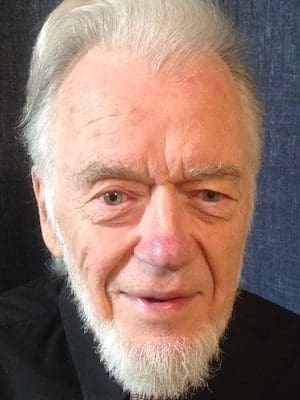The Fellowship of Reconciliation (FOR) is celebrating its 100th anniversary this week in New York City.
FOR was launched as the result of a pact made by two Christians in August 1914 at the outbreak of the World War I.
The two men, a British Quaker and a German Lutheran, had just come to an ecumenical conference of Christian pacifists who were hoping to prevent the war.
As they were separating on a platform of the railway station in Cologne, Germany, they made this pledge to each other. “We are one in Christ and can never be at war.”
What a difference it would have made in world history if all the Christians in Europe had made that same pledge.
In late December of that year, the Englishman, Henry Hodgkin, organized a conference in Cambridge at which 130 Christians of various denominations joined in the founding of the Fellowship of Reconciliation in England.
About a year later, in November 1915, FOR was begun in the United States by 68 pacifists, including Jane Addams, the first woman to win the Nobel Peace Prize, about whom I wrote a few weeks ago.
Another of the organizers in the U.S. was Congregationalist minister A.J. Muste, who later became a Quaker and who served as executive secretary (now titled executive director) of FOR from 1940 to 1953.
One of Muste’s most cited statements is, “There is no way to peace; peace is the way.”
John Swomley served from 1953 to 1960 as FOR’s next executive secretary. In 1960, he became a professor of social ethics at St. Paul’s School of Theology in Kansas City, where he taught until his retirement in 1984.
During those years, Swomley was the leader of the local branch of FOR. In 1976-77, when my wife and I were back from Japan for a year and living in Liberty, Missouri, I attended a few FOR meetings in Kansas City and became acquainted with Swomley and gained a greater appreciation for FOR.
Since 2013, the executive director of FOR-USA has been Kristin Stoneking, an ordained United Methodist Church minister.
Her father, John Stoneking, was once pastor of Rosedale United Methodist Church in Kansas City, Kansas, in the church building that is now the home of Rainbow Mennonite Church, where my wife and I are members.
On Saturday, Nov. 7, from 3 to 9:30 p.m., there will be activities at Riverside Church in New York City celebrating the 100th anniversary of FOR-USA.
The 75th anniversary in 1990 was also celebrated at Riverside Church with an interfaith service. For many years, there have been many people belonging to non-Christian religions who have been active participants in FOR.
Ten years ago, Paul R. Dekar, a seminary professor, authored “Creating the Beloved Community: A Journey with the Fellowship of Reconciliation.”
In part one, he describes six ways FOR challenges “the nexus of evil,” including “challenging the making of enemies.”
Dekar writes that FOR members “have sought to see so-called enemies as potential friends.” That statement reminded me of the well-known story about President Lincoln.
During the Civil War, Lincoln was criticized for speaking of benevolent treatment for the Southern rebels.
The critic chided Lincoln, reminding him that there was a war going on, that the Confederates were the enemy and so they should be destroyed.
Lincoln’s wise response was, “Do I not destroy my enemies when I make them my friends?”
FOR has not succeeded in bringing about reconciliation among all people. Still, the world is doubtlessly better off because of its work over the past 100 years.
 Leroy Seat was a missionary to Japan from 1966-2004 and is both professor emeritus of Seinan Gakuin University and pastor emeritus of Fukuoka International Church. His writings also appear on his blog, The View from this Seat. You can follow him on Twitter @LKSeat.
Leroy Seat was a missionary to Japan from 1966-2004 and is both professor emeritus of Seinan Gakuin University and pastor emeritus of Fukuoka International Church. His writings also appear on his blog, The View from this Seat. You can follow him on Twitter @LKSeat.
A missionary to Japan from 1966-2004, he is both professor emeritus of Seinan Gakuin University and pastor emeritus of Fukuoka International Church.

